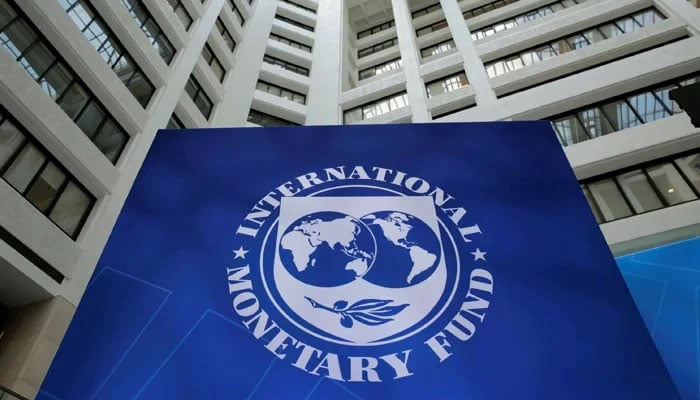Pakistan reaches staff-level agreement with IMF on final review of $3bn SBA
Fund says Pakistan’s economic and financial position has improved in the months since the first review
ISLAMABAD: Talks between Pakistan and the International Monetary Fund (IMF) have successfully reached staff-level agreement for the final review part of the $3 billion Stand-By Arrangement (SBA).
“The IMF team has reached a staff-level agreement with the Pakistani authorities on the second and final review of Pakistan’s stabilisation program supported by the IMF’s US$3 billion (SDR2,250 million) SBA approved in January 2024 (Press Release No. 23/261). This agreement is subject to approval by the IMF’s Executive Board, upon which the remaining access under the SBA, US$1.1 billion (SDR 828 million), will become available,” said Nathan Porter, the head of the IMF team that held talks in Islamabad from March 14-19 on the second review.
The IMF mission chief noted that Pakistan’s “economic and financial position” was improving since the first review due to “prudent policy management and the resumption of inflows from multilateral and bilateral partners”.
But Porter warned that economic growth will remain “modest” in the ongoing financial year as inflation is still above target.
He called for the implementation of ongoing policy and reform to address Pakistan’s deep-seated economic vulnerabilities amidst the ongoing challenges posed by elevated external and domestic financing needs and an unsettled external environment.
On the Shehbaz Sharif-led government, the IMF team stated that the new setup is ready to follow the “policy efforts” that were launched in the SBA for the remainder of the year.
“In particular, the authorities are determined to deliver the FY24 general government primary balance target of PRs 401 billion (0.4% of GDP), with further efforts towards broadening the tax base, and continue with the timely implementation of power and gas tariff adjustments to keep average tariffs consistent with cost recovery while protecting the vulnerable through the existing progressive tariff structures, thus avoiding any net circular debt (CD) accumulation in FY24,” said the Washington-based lender.
Porter also stated that the State Bank of Pakistan is “committed to maintaining a prudent monetary policy to lower inflation and ensure exchange rate flexibility and transparency in the operations of the forex market”.
The statement also mentioned about a new loan Pakistan is planning to seek from the Fund.
“The authorities also expressed interest in a successor medium-term Fund-supported program with the aim of permanently resolving Pakistan’s fiscal and external sustainability weaknesses, strengthening its economic recovery, and laying the foundations for strong, sustainable, and inclusive growth,” said the IMF.
Porter pointed out five key objectives that will be discussed for the new programme with the conclusion of the SBA.
The programme would focus on: (i) strengthening public finances, including through gradual fiscal consolidation and broadening the tax base (especially in undertaxed sectors) and improving tax administration to improve debt sustainability and create space for higher priority development and social assistance spending to protect the vulnerable; (ii) restoring the energy sector’s viability by accelerating cost reducing reforms including through improving electricity transmission and distribution, moving captive power demand to the electricity grid, strengthening distribution company governance and management, and undertaking effective anti-theft efforts; (iii) returning inflation to target, with a deeper and more transparent flexible forex market supporting external rebalancing and the rebuilding of foreign reserves; and (v) promoting private-led activity through the above mentioned actions as well as the removal of distortionary protection, advancement of state owned enterprises reforms to improve the sector’s performance, and the scaling-up of investment in human capital, to make growth more resilient and inclusive and enable Pakistan to reach its economic potential.
-
Bitcoin plummets toward $60,000 as investors dump risky bets
-
Bitcoin crashes below $63K as regulatory pressure and market fears grow
-
Bitwise Crypto Industry innovators ETF: What investors should do in 2026?
-
Nintendo shares slide again as momentum fears grow
-
Gold, silver prices fallen sharply; What’s driving the drop?
-
Gold’s record climb: Experts question if its safety is ‘overstated’
-
Dubai unveils plans to construct street built with real gold
-
Netflix slams Paramount’s bid: 'Doesn't pass sniff test’ as Warner battle escalates












